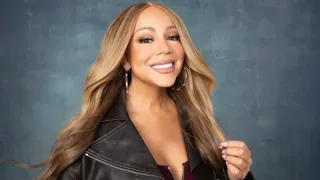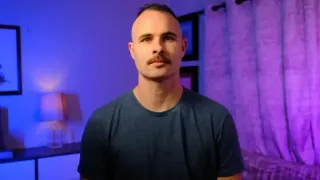
3 hours ago
Bowen Yang and Matt Rogers Teach Seth Meyers About the ‘Gay Uniform’
READ TIME: 3 MIN.
On September 24, 2025, the Flatiron District’s Passerine bar hosted not just cocktails but a unique convergence of queer culture and comedy, as Bowen Yang and Matt Rogers joined Seth Meyers for a lively episode of "Day Drinking" on NBC’s "Late Night with Seth Meyers" . The segment quickly moved beyond simple revelry, delving into the intersection of LGBTQ+ identity, fashion, and mainstream representation.
As the trio exchanged playful banter over celebrity-inspired cocktails—such as the “Las Culturistas” margarita, named after Yang and Rogers’ award-winning podcast—the energy was both jubilant and reflective. Rogers and Yang, celebrated for their incisive humor and cultural commentary, brought their trademark wit to the table, making the segment more than just a comedic interlude .
Midway through the segment, the conversation turned to the concept of the “gay uniform”—a term often used within LGBTQ+ circles to describe the aesthetic markers and style choices that signal queer identity, especially in urban contexts. In a moment that quickly went viral, Yang and Rogers encouraged Meyers to try on a tank top, a garment often emblematic of queer summer fashion and nightlife. Meyers, game for the challenge, donned the tank, prompting Rogers to quip about the “official gay uniform,” and Yang to reflect on the meaning behind such sartorial choices .
“Fashion has always been a way for queer people to communicate with one another—often before we could do so openly,” Yang explained, emphasizing how clothing can foster both community and visibility. Rogers added, “There’s a real joy in reclaiming these symbols, turning what once might have been a stereotype into a badge of pride.” Their comments underscored the evolving relationship between LGBTQ+ identity and personal expression, especially in environments where mainstream culture is increasingly open to queer influences .
The segment’s playful tone belied a deeper conversation about how queer fashion—once a subcultural phenomenon—has entered the mainstream. Yang and Rogers joked about the ubiquity of short shorts, bold prints, and tank tops at Pride events and gay bars, but also acknowledged the history behind these trends. “These aren’t just clothes; they’re signals of belonging, especially for those of us who grew up searching for our people,” Rogers noted .
Fashion historians and LGBTQ+ advocates have long documented the role of style in queer communities. From the coded handkerchiefs of the 1970s to the flamboyant clubwear of the 1990s, clothing has served as both armor and invitation. The tank top, as highlighted in the segment, is one such item—practical yet symbolic, at once mundane and charged with meaning. Yang’s and Rogers’ willingness to discuss this on national television reflected the ongoing shift toward greater LGBTQ+ visibility and self-definition in popular media .
For many LGBTQ+ viewers, moments like these are more than entertaining—they’re affirming. Seeing openly gay comedians like Yang and Rogers not only joke about queer tropes but also unpack their significance helps demystify and destigmatize LGBTQ+ identities for wider audiences. Meyers, known for his inclusive approach to guest booking, provided a platform for their voices in a setting that balanced humor with insight .
The “Day Drinking” episode also illuminated the importance of representation in media. As queer style enters mainstream consciousness, so too does the conversation about authenticity and appropriation. Yang and Rogers’ playful schooling of Meyers was, in part, a gentle reminder that LGBTQ+ culture is rich with history and meaning—and that allies can participate in, but should also respect, these traditions .
Bowen Yang and Matt Rogers have built their reputations on fostering bold, open dialogue about queer life. Their “Las Culturistas” podcast is known for dissecting pop culture through a queer lens, and their appearance on "Late Night with Seth Meyers" continued this mission. By bringing up the “gay uniform” in a mainstream setting, they challenged audiences to reconsider what visibility means in 2025—and how fashion, humor, and media can be tools for empowerment .
Their interaction with Meyers also highlighted the generational and cultural shifts within LGBTQ+ communities. While the “gay uniform” might have been a source of anxiety or exclusion in decades past, Yang and Rogers reframed it as a source of pride and playful self-expression. “It’s about feeling seen and celebrating who you are, together,” Yang said, echoing sentiments frequently expressed on their podcast .
The segment concluded with Meyers, Yang, and Rogers toasting to queer joy and the power of visibility. For LGBTQ+ viewers and allies alike, the episode was a testament to how far representation has come—and how humor and fashion can foster inclusivity. As the “Las Culturistas” hosts continue to shape conversations around LGBTQ+ culture, their playful schooling of Meyers stands as a reminder: Pride isn’t just about what you wear, but how you wear it—boldly, joyfully, and together .






